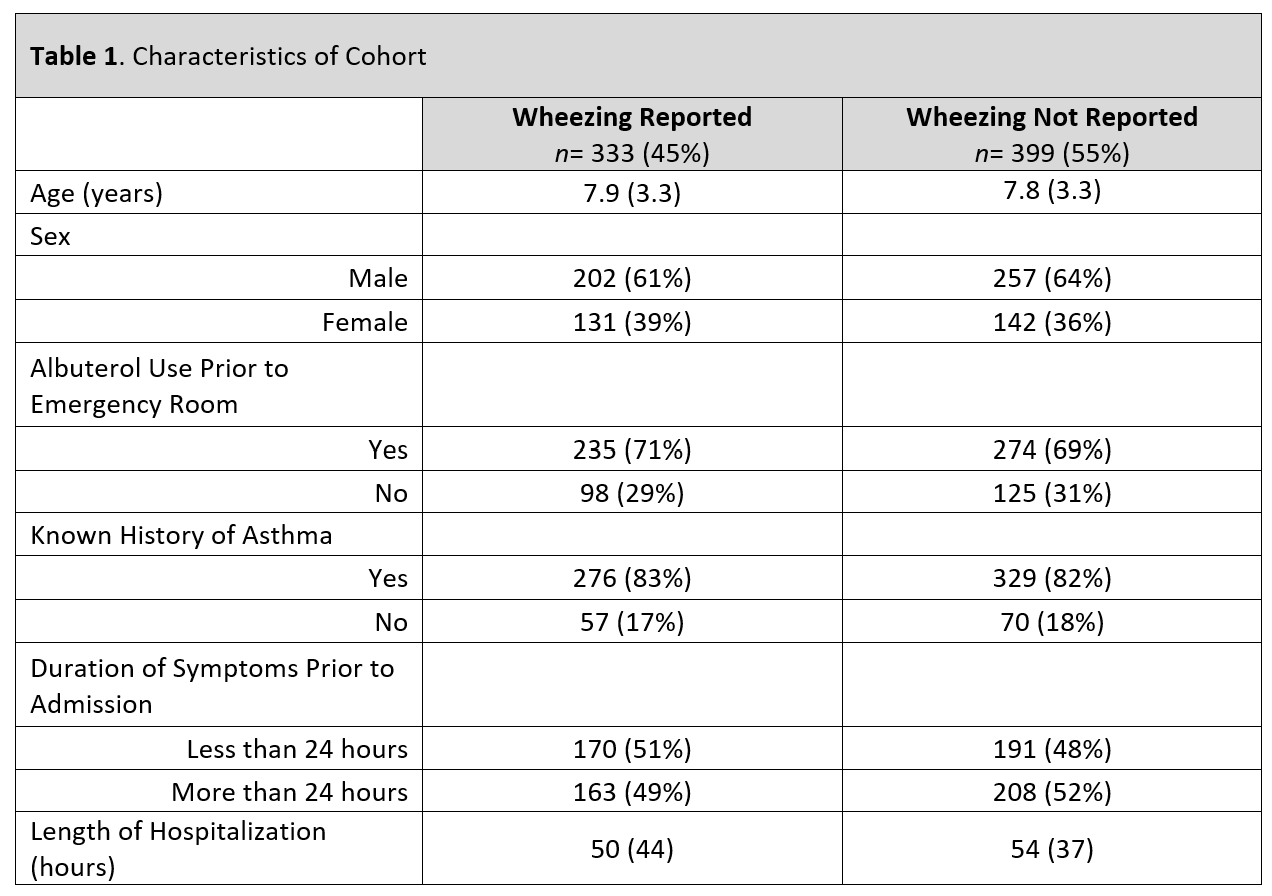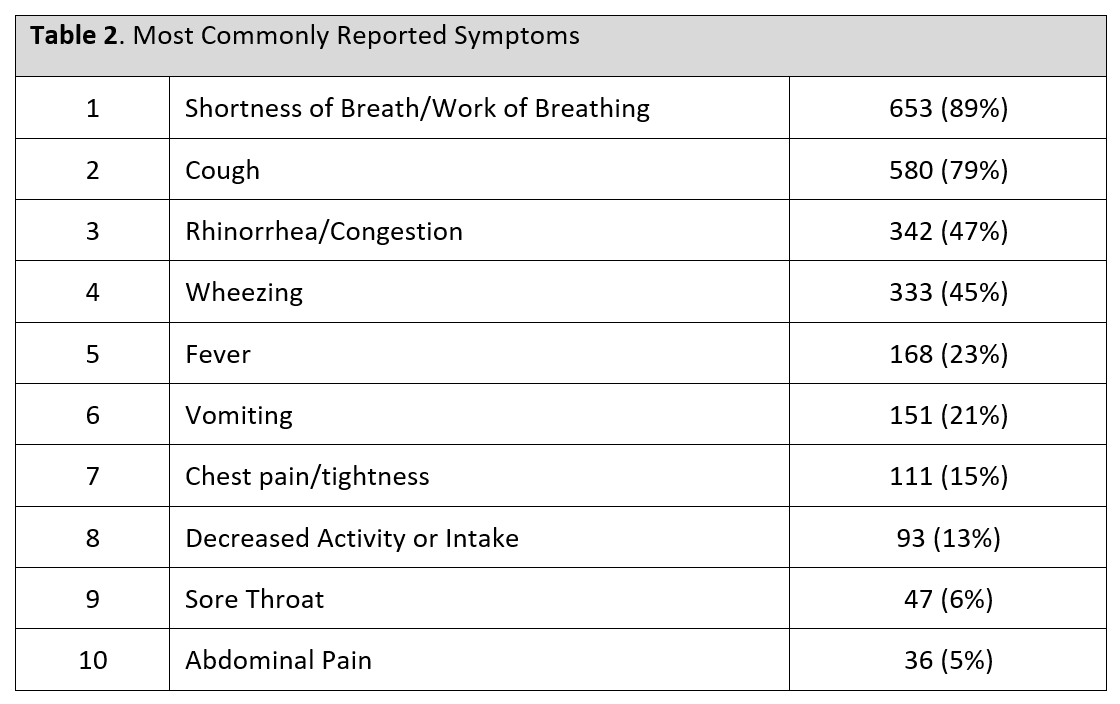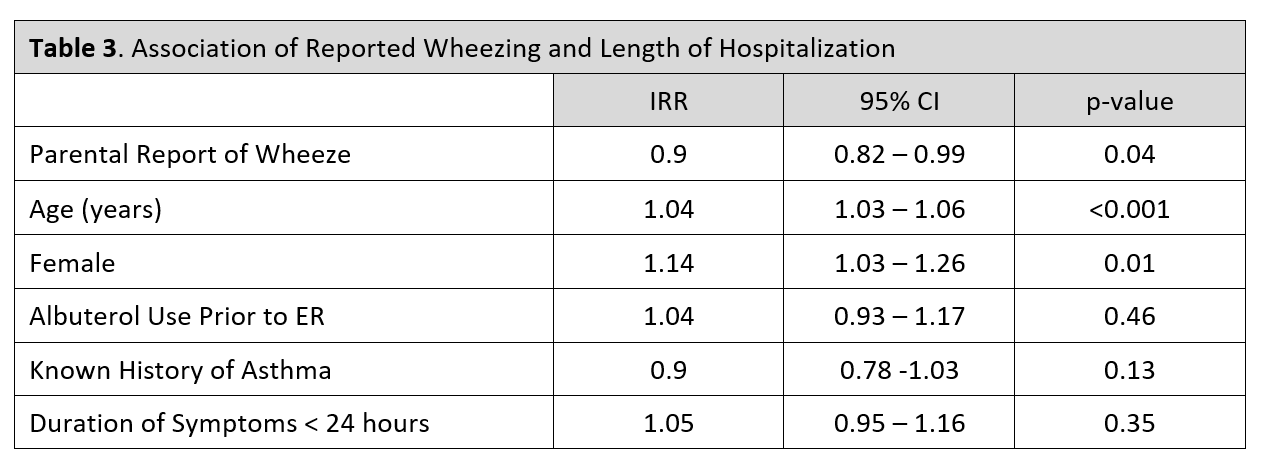Asthma
Asthma 1
362 - Parental Recognition of Wheezing is Associated with Decreased Length of Pediatric Asthma Hospitalization
Publication Number: 362.302

Raymond Parlar-Chun, MD
Associate Professor of Pediatrics
McGovern Medical School at the University of Texas Health Science Center at Houston
Houston, Texas, United States
Presenting Author(s)
Background:
While wheezing is universally present in asthma exacerbations, it is a symptom that can be difficult to recognize to an untrained observer without access to a stethoscope. Children are reliant on their caregivers to recognize symptoms and bring them to care. Delayed recognition may result in more severe exacerbations.
Objective:
We evaluate the association of parental recognition of wheezing with length of hospitalization. We hypothesize that parents that report wheezing in the history of present illness (HPI) will be associated with decreased lengths of stay (LOS) as a result of early recognition of an asthma exacerbation.
Design/Methods:
Pediatric (4-17 years old) asthma admissions over a 3-year period to an urban tertiary hospital were identified using ICD codes. The HPI portion of the admission history and physical was extracted from the electronic medical record. Symptoms were recorded as documented in the HPI. Other variables collected were age, sex, use of albuterol prior to presentation to emergency department (ED), known history of asthma, whether symptom onset was within 24 hours of presentation, and length of hospitalization. Negative binomial regression was used to evaluate association of reported wheezing with LOS with control of other covariates.
Results:
732 hospitalizations were analyzed. 333 (45%) HPIs reported wheezing, and the majority of the cohort were males, used albuterol prior to presentation to the ED, and had known history of asthma TABLE 1. Shortness of breath or increased work of breathing was the most common reported symptom (89%), followed by cough (79%), and rhinorrhea or congestion (47%) TABLE 2. In regression we find significant associations with age, sex, and report of wheezing with length of hospitalization. Each additional year older was associated with a 4% increased LOS, females had 14% increased LOS, and those with reported wheezing had 10% decreased LOS. TABLE 3.
Conclusion(s):
We find that parental report of wheezing was associated with a protective effect in length of hospitalization. We also find that even though wheezing is a universal symptom of asthma, less than half of parents reported it. These findings support interventions to improve parental awareness and education of wheezing to help decrease severity of pediatric asthma exacerbations.


